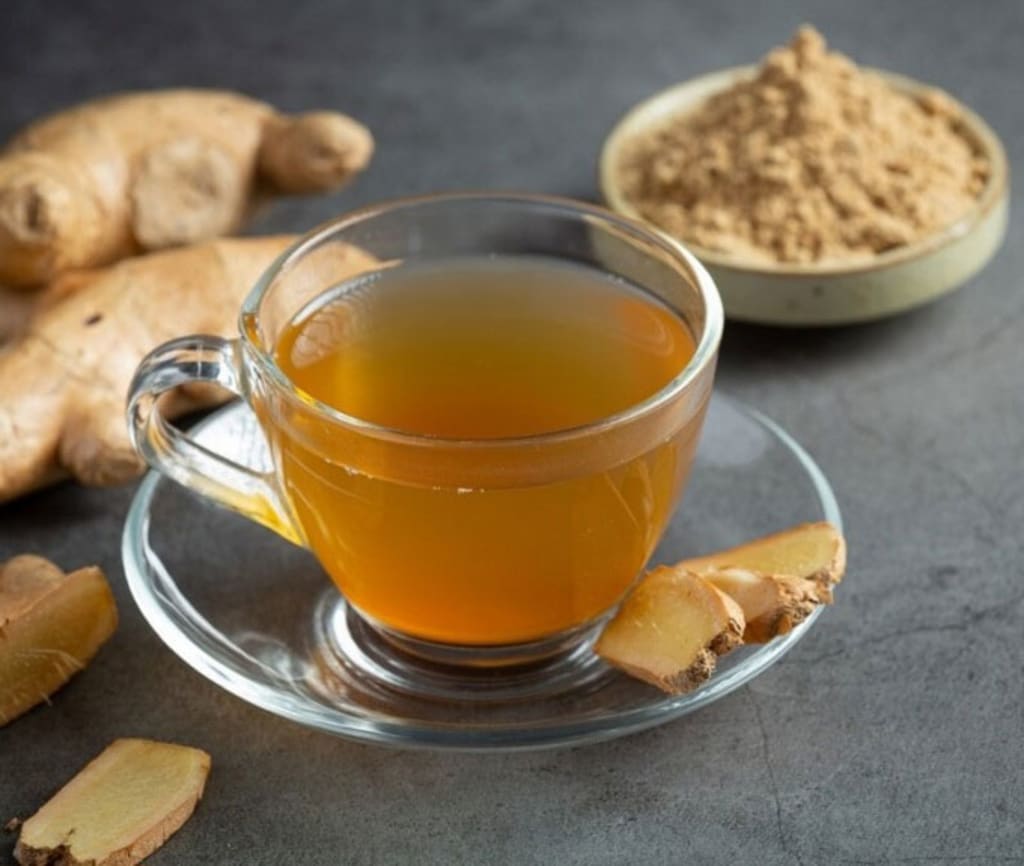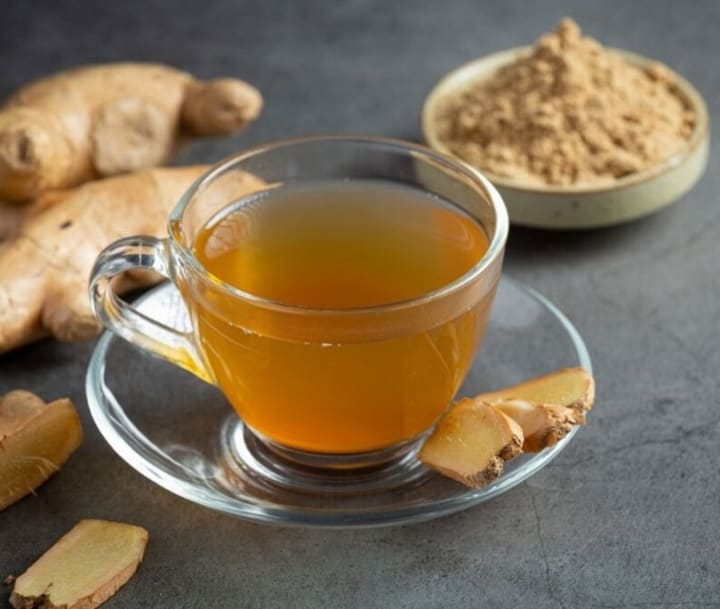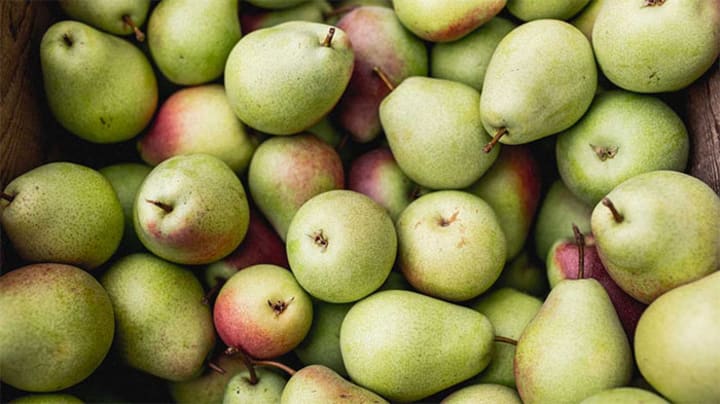Top 7 foods and drinks good for people with sensitive stomachs
Ginger tea, bone broth, bananas... help reduce symptoms caused by sensitive stomach, enteritis, irritable bowel syndrome .

Sensitive stomach is a condition that many people experience, with symptoms such as bloating and indigestion. Norovirus infection is also quite common, with about 685 million people worldwide suffering each year. The disease causes stomach pain, abdominal cramps, loss of appetite, nausea and vomiting, and diarrhea. Norovirus is a stomach and intestinal virus that is easily spread through direct or indirect contact with an infected person.
Fermented foods
Kimchi, yogurt, miso, and kombucha tea provide probiotics in the form of beneficial live bacteria, which help prevent harmful bacteria in the intestines. People with digestive problems who eat fermented foods can balance the intestinal microflora and improve digestion.
A 2023 review by the Korean Institute of Oriental Medicine and others, based on 11 studies, found that consuming kimchi helps treat irritable bowel syndrome. Kimchi is also rich in fiber, vitamins, and minerals that are good for overall health.
Cooked vegetables
People with sensitive stomachs should avoid raw vegetables, salads, especially cruciferous vegetables because they are difficult to digest; instead, eat soft cooked vegetables. For example, cooked zucchini and eggplant are beneficial for people with irritable bowel syndrome. Steamed or boiled vegetables eaten with white rice and lean protein are healthy for people with sensitive stomachs.
Slow cooking bond soups
Bone broth helps relieve stomach pain because it is easy to digest and does not irritate the intestines. According to the Crohn's and Colitis Foundation of America, bone broth has anti-inflammatory properties that help reduce the symptoms of ulcerative colitis.
Bone broth can boost collagen production to restore the lining of the digestive tract, especially in the elderly due to the effects of age. Collagen in bone broth also improves skin elasticity and joint health.

Ginger tea is effective in reducing nausea.
Herbal tea
Peppermint and ginger teas soothe an upset stomach and relieve abdominal pain. A 2000 review by the University of Exeter, UK, of five studies found that ginger eased nausea caused by a sensitive stomach, morning sickness, chemotherapy, or medications. Inhaling the scent of peppermint also helped relieve nausea.
Drinking herbal tea also keeps you hydrated because dehydration causes stomach aches, fatigue, and other digestive problems.
Kefir
Kefir is a milk drink fermented with Tibetan milk fungus that resembles thin yogurt, containing about 12 strains of probiotic bacteria that are beneficial to the intestines.
According to a 2018 study from Istanbul Aydın University in Türkiye, 45 people with inflammatory bowel disease who drank 400 ml of kefir daily for 4 weeks had better changes in gut bacteria, less abdominal pain, bloating, stomach discomfort and bowel frequency.
Kefir is also rich in calcium, protein and B vitamins which are good for bone health and help create energy to maintain normal functioning.
Banana
Bananas are soft and easy to digest, suitable for people with sensitive stomachs and irritable bowel syndrome.
According to Umass Chan School of Medicine, USA, bananas are rich in prebiotic fiber which helps nourish beneficial intestinal bacteria, balance good and bad bacteria, and improve inflammation in people with inflammatory bowel disease. This fruit also contains potassium, magnesium, vitamin C, and B6 which are essential for overall health.
Pear

Pears provide abundant fiber that promotes the growth of good bacteria in the large intestine, contributing to maintaining a healthy digestive tract. People with constipation eat pears, prunes and dates to have easier bowel movements, reducing stomach discomfort.
People with irritable bowel syndrome should limit pears because some of the sugar can cause intestinal problems; instead choose grapes, oranges and strawberries.
Fermented foods
About the Creator
Ken Daklak
Telling stories my heart needs to tell <3 life is a journey, not a competition
If you like what you read, feel free to leave a tip,I would love some feedback
https://s.shopee.vn/pa9mXcwE?share_channel_code=8
Enjoyed the story? Support the Creator.
Subscribe for free to receive all their stories in your feed. You could also pledge your support or give them a one-off tip, letting them know you appreciate their work.






Comments
There are no comments for this story
Be the first to respond and start the conversation.